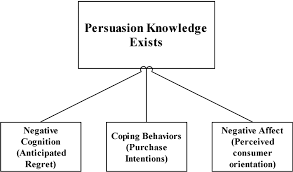Role of the Persuasion Knowledge
Mar 27, 2023
This research paper discusses the role of persuasion knowledge in communication and its effects on decision-making. Specifically, we will explore the ways in which persuasion knowledge is used to influence attitudes and behaviours as well as how it can be harnessed to create positive outcomes. We will seek to answer questions such as what types of persuasive strategies are most effective; when should they be used; and how can they be adapted for different contexts. Additionally, we will investigate if there are any ethical considerations associated with using persuasion knowledge that must be taken into account before employing these techniques. Ultimately, this paper aims to equip readers with the necessary tools needed to use persuasion knowledge successfully and ethically in their own lives.

Fundamentals of persuasion knowledge can be broken down into three primary components which are knowledge of the target individual, message design and delivery, and situational awareness. The first component, knowledge of the target individual, is particularly important as it helps to inform how the persuasive message should be delivered. Through research on the person's interests, values, attitudes, and beliefs an effective strategy for persuasion can be crafted. The second component involves determining what type of message to craft in order to maximize its effectiveness. This includes considering different angles from which to present arguments as well as selecting various mediums suitable for delivering the message such as social media posts or face-to-face interactions. Lastly, situational awareness is key when attempting to persuade someone because being aware of environmental factors that may influence their decision making helps to tailor the message accordingly.
These three components form the foundation of persuasion knowledge and help shape its role in communication. Applying this knowledge is a skill that requires practice but can be beneficial for both parties involved when used ethically. By using persuasive tactics strategically, individuals are able to better express their own desires while also presenting their arguments in a way that is more likely to be understood and accepted by others. In addition, learning how to effectively recognize and respond to persuasive techniques used by others can help people resist manipulation or exploitation more easily. Ultimately, persuasion knowledge has the potential to empower people by equipping them with the skills needed to successfully navigate conversations and make decisions based on sound reasoning rather than biased influences.
